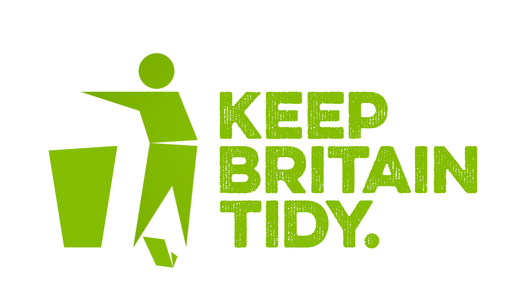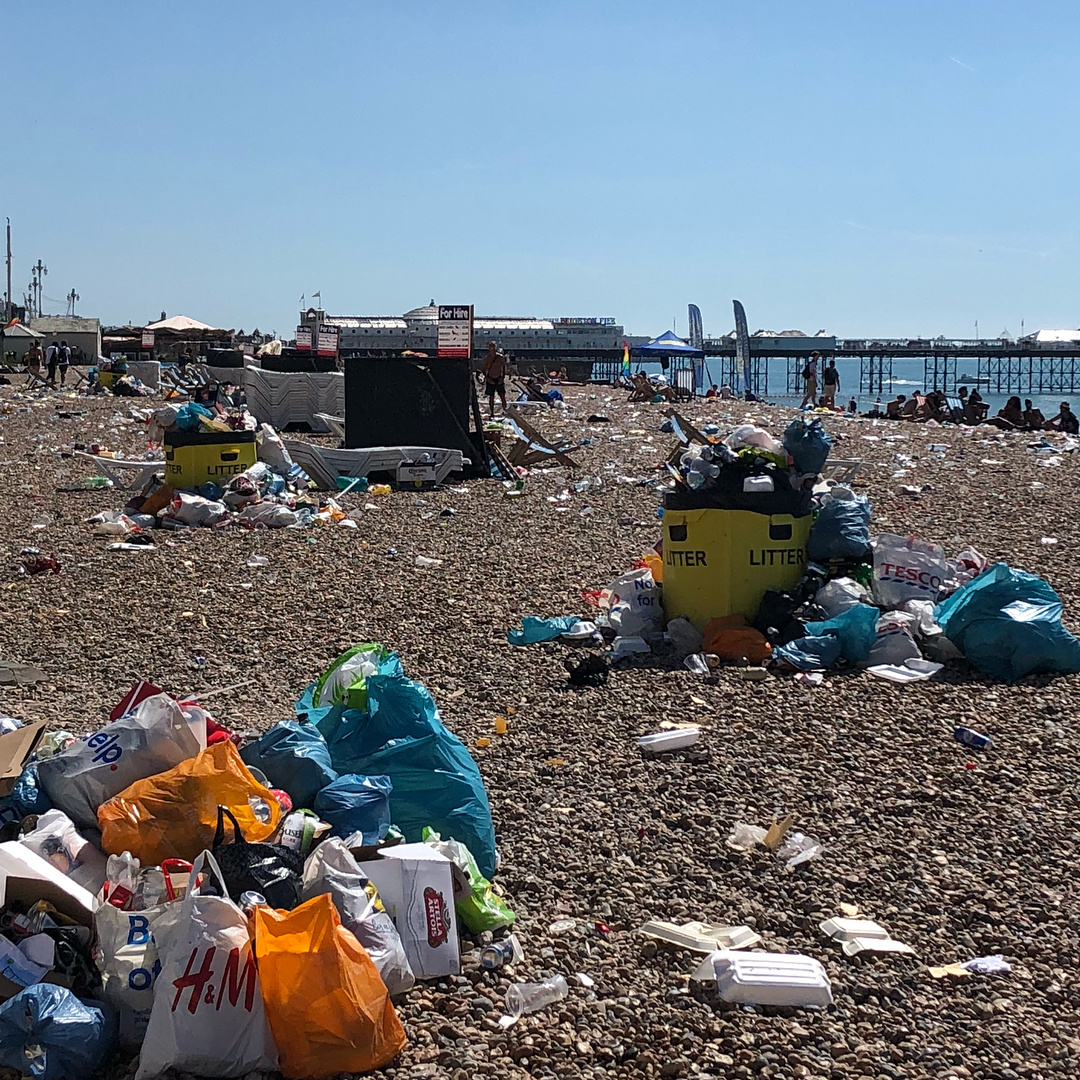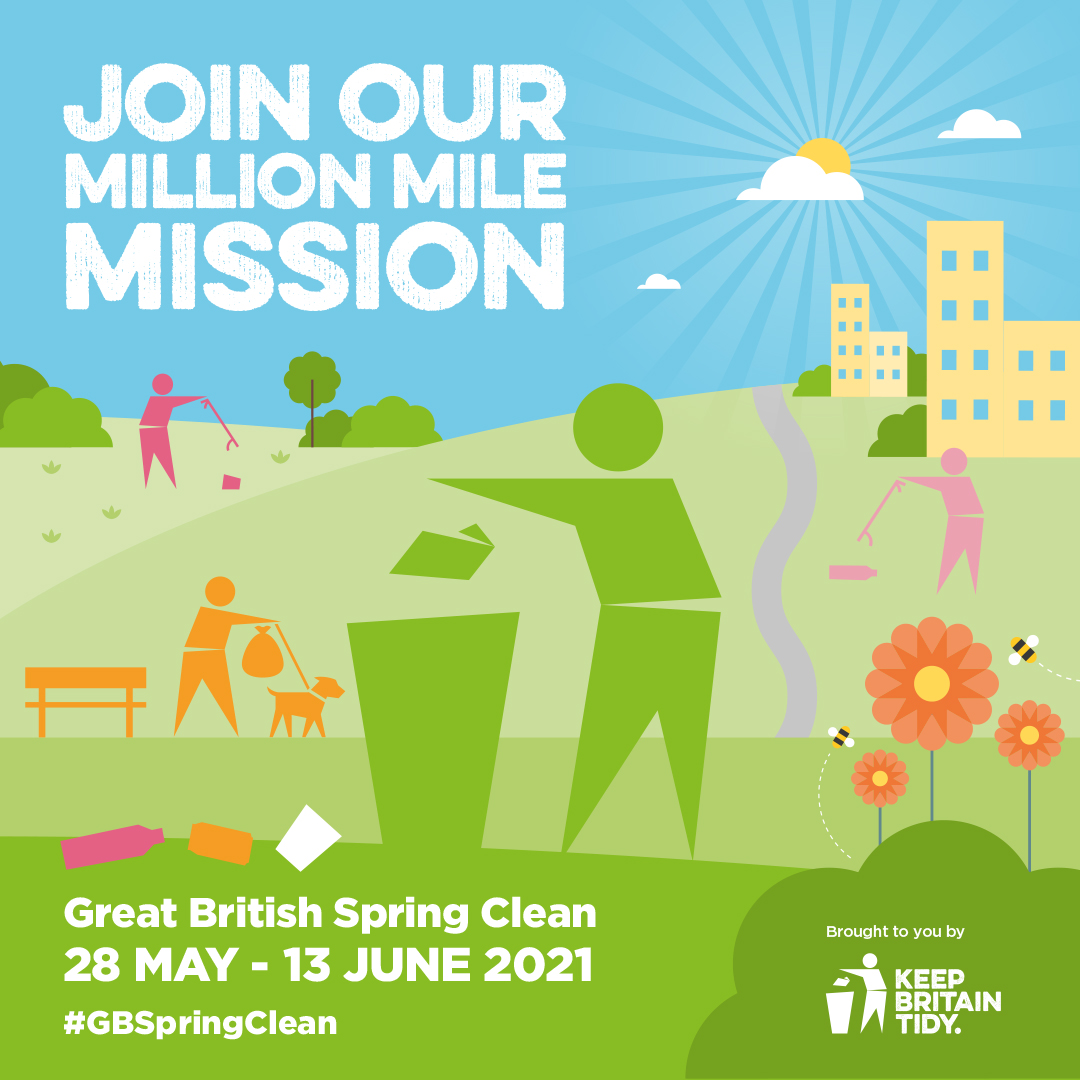POST-LOCKDOWN LITTERING: The Keep Britain Tidy plan to turn the rising tide on litter
We came to value our local green space during the pandemic more than ever. But as we emerge from lockdown, scenes of widespread littering, parks strewn with fast food packaging, beer cans and abandoned barbecues are shocking and have led many to ask, what can be done?
Environmental vandalism by littering is at an all time high. It will happen next time the sun comes out and on the following bank holiday weekend.
But we can stop it if we act fast. Keep Britain Tidy has been campaigning against littering for generations. We know what has to happen to fight back, protect our green spaces, and prevent litter louts from robbing us of our precious parks, natural habitats for wildlife, clean roads, and stunning beauty spots.
Those who think litter is someone else’s problem are wrong; it isn’t – it’s everyone’s problem. The cost of clearing up after the careless is too great.
First and foremost, the environment can’t cope, with millions of wild animals dying every year, entombed in bottles, burnt in fires started by discarded barbecues and caught up in balloons and lanterns carelessly released and thousands of pets injured by broken glass or worse.
Finally littering costs circa £1 billion a year local authorities and others spend picking up after those too lazy to find a bin or take it home.
We have a plan to turn the rising tide on litter.
Inform: Back a national campaign publicising the devastation caused by litter

Parks and green spaces are under attack from revellers who want to ‘let it all hang out’. Access to these publicly maintained natural oases should only be given to those who agree to maintain their integrity. We welcome the revised Countryside Code and want everyone to understand that they must leave green space as they found it. We believe a national hard-hitting public awareness campaign showing the damage done by toxic litter like used PPE, cigarette butts and packaging is urgently needed. The message must be clear – if you took it there, take it home!
Enforce: Ensure the threat of enforcement is real

Of course, some people just won’t listen, so for them, the threat of fines must be real. Littering is a crime. Leaving your bagged dog poo swinging in a tree, meeting up with mates and abandoning your picnic in the park or flicking your cigarette butt out of the car window are all crimes. Too many people believe they won’t get caught, so the threat of fines must be real. Enforcement must be widespread and set at a level that will make even the most careless litter-lout stop and think. New technologies such as CCTV should be deployed to catch those lobbing litter out of cars, with fines sent to the registered car owner. Roadside littering is on the rise and is dangerous and expensive to clean up.
DRS: An all-in Deposit Return Scheme now

Drink containers make up three-quarters of the volume of litter found in this country. We urgently need an all-in deposit return scheme for all sizes of plastic, glass and aluminium containers. By putting a value on the packaging and not just the drink, the result will be substantially less litter. Research shows that a well-designed, all-in scheme could lead to over 90% of bottles put to market being collected for recycling, leading to the single biggest reduction in litter.
Stop: Break up with single-use

We must end our love affair with single-use packaging and not let the pandemic put us off swapping out single-use for reusable alternatives like reusable water bottles and coffee cups. Before the pandemic, we consumed over 2.5 billion single-use, plastic-lined coffee cups every year, which led to over half a million cups littered every day. When coffee cups end up in landfill, they release a carbon footprint equivalent of around 152,000 tonnes of CO2. More must be done to legislate, ensuring that packaging does not reach the market if it cannot be easily recycled. Those items that cause the most ecological damage, like so-called disposable barbecues, must be banned. Once lit, you can’t easily dispose of these chemically saturated flammable metal trays. They remain dangerous for longer than most people intend to stay with them and are either abandoned hot or dumped into bins, causing devastating fires, injuries to people, and even death for some animals. Last summer, disposable barbecues caused hundreds of acres of forests in Wareham and Puddletown, and grasses in Feltham and elsewhere to go up in flames. Many public bins were also set on fire by these weapons of mass ecological destruction, so we joined councillors in Dorset and others in calling for them to be banned – now. Campaigns and cleansing should be funded, alongside other measures outlined in this plan, by introducing Extended Producer Responsibility. It would make the manufacturers of this mountain of discarded waste pay for its clean-up – adopting the principle that‘the polluter pays’. A recent survey from Ipsos MORI found that 74% of those surveyed felt businesses should act now to combat climate change or fail their customers.
Volunteer: Join Keep Britain Tidy’s #MillionMileMission to back community action

The front line against litter needs you. This year’s Great British Spring Clean has already seen the highest number of volunteers ever at this stage, but the size of the task ahead is great, and we need you to join our #MillionMileMission. Check our website and pledge however many minutes you can spare to help us clean up. Nothing sends the message that your community won’t stand for littering better than litter-picking heroes getting stuck in. Year-round, many charities like Keep Britain Tidy and community groups have organised litter picks that make a huge difference in turning the tide on litter.
Insight: Understand more about why this happens and get retailers to do their bit

Before the pandemic, the UK was the largest consumer of food and drink on the go. We love our convenience food, but the enormous volume of packaging it generates translates into a landscape of litter. Now that we can only eat outdoors, things have got even worse. So, we think retailers should send a clear message to their customers that they do not want their products’ packaging littered. This needs to be declared at the point of sale. At Keep Britain Tidy, we believe you can’t manage what you can’t measure. So we monitor litter at thousands of locations. Our experts also study how litter enters the environment, what specific behaviours lead to littering and what ‘nudges’ will get the best results in turning the tide. We lead the world in our knowledge and insight, and our award-winning campaigns, like We’re Watching You, Crime Not To Care, #TedSays and It’s Still Littering, have made a big difference. But more needs to be done to understand why people litter and its impact on the environment.
Educate: Educate for a better future

Schools have a vital role in inspiring a new generation of young people to do better than we have. Activist Greta Thunberg says we need more empathy in this post-truth society to care about what is happening to the world, and we agree. We believe that encouraging children to learn about the issues of plastic pollution, littering and challenging them to think about the causes and solutions will be fundamental in developing a litter-free society. To that end, we believe our Eco-Schools programme should be in every school, not just the 20,000 that have joined the programme. Every school must be funded to complete the planet-saving programme and get the Eco-Schools Green Flag that proudly declares they are backing a better future for the environment.





